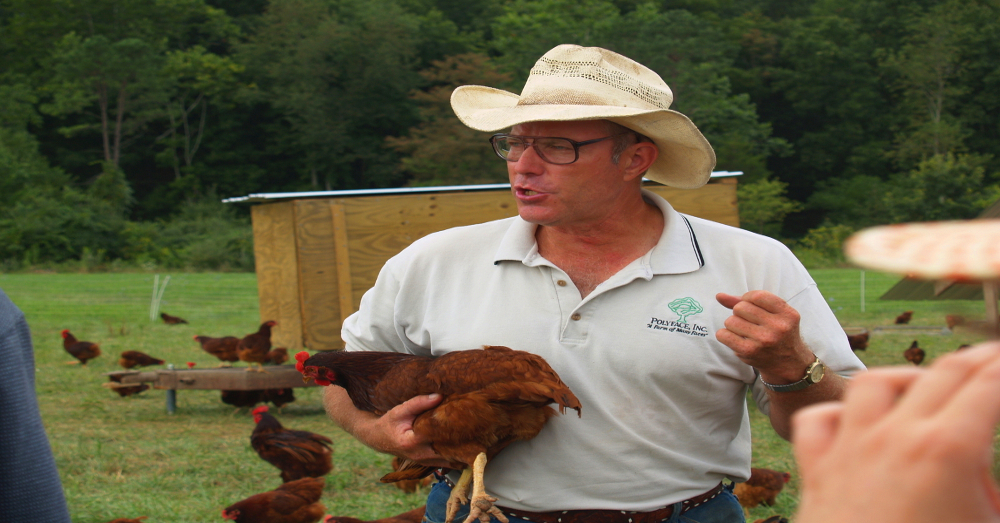
On Food And Farming
Folks, we are living in exciting times, in which the industrial economy is giving way to the information economy. Since agriculture was the last economic sector to move from the agrarian to the industrial economy, it will be the last to exit.
March 22, 2017 | Source: The Salatin Semester | by Joel Salatin
Folks, we are living in exciting times, in which the industrial economy is giving way to the information economy. Since agriculture was the last economic sector to move from the agrarian to the industrial economy, it will be the last to exit. And make no mistake about it, the industrial food sector is showing some wear and tear. Indeed, people who study paradigms would even say it’s on the brink of collapse.
How so? Think about all those little Latin italicized words we’ve all learned to say recently that weren’t even in our lexicon a mere two decades ago: camphylobacter, listeria, E. coli, physteria and bovine spongiform encephalopathy. This is nature’s language crying out, “Enough!”
Cramming nine chickens in a cage 19 by 22 inches is taking so-called scientific efficiency far enough. Stacking 5,000 pigs in grow-out pens over and under their own excrement is enough. In addition, fuel costs are beginning to take a toll on the industrial food paradigm. The 1,500 miles the average morsel of food travels from farm to plate is only efficient when energy is cheap. We may soon realize that outsourcing everything is actually inefficient.
The disconnections inherent in the industrial paradigm are wearing thin as well. A beaded, bearded, braless generation epitomized by Woodstock matured into baby boomers yearning for soul, for meaning, for roots, for heritage. Out of the industrial factory, the zenith of Greco-Roman Western compartmentalized, fragmented, parts-oriented, systematized, reductionist, linear thinking grew a spiritual hunger for the East: holism, community and connections
